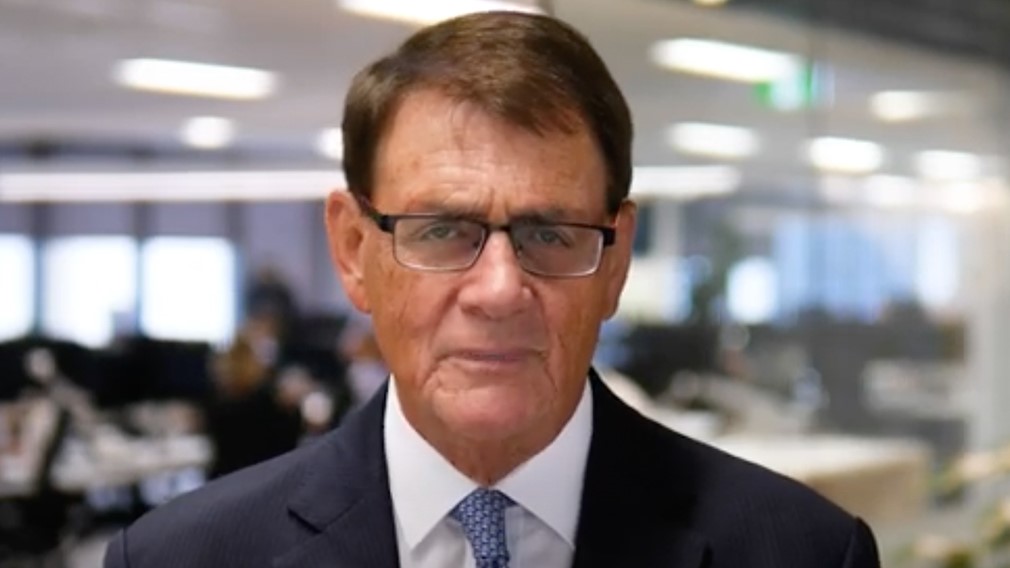AUDIO: Evans eyes critical period ahead

Westpac chief economist Bill Evans. (Josh Wall)
The economic blow from the coming “fiscal cliff” as government support measures are scaled back will be cushioned by households' prior balance sheet repair and savings, according to Westpac’s chief economist Bill Evans, who also believes the number of workers who will still be on JobKeeper has been underestimated.
In an economic briefing this week, Mr Evans said while the biggest risk from the COVID-19 pandemic in the next 12 months was no success finding a treatment or a vaccine and ensuing ongoing lockdowns, the fiscal cliff was a major near-term concern.
He cited how in contrast to the June and September quarters when government support totalled around $65 billion and $102bn, respectively, from various measures including the JobKeeper wage subsidy, this could fall to around $22bn in the final three months of the year as the number of JobKeeper recipients slid from 3.4 million to 1.4 million, and the fortnightly payment was reduced. It coincides with the conclusion of loan repayment deferral periods for some homeowners and businesses in coming months.
But assuming Victoria contains the virus and gradually reopens, and NSW doesn’t experience a similar disaster, Mr Evans said government stimulus already delivered to households and businesses will help the economy still expand at a pace of more than 2 per cent in final quarter of 2020.
“I think with the reopening of the economy, the fact that those savings are still in the system and the fact that the government has significantly underestimated the number of workers that will still get JobKeeper, I think the economy will show pretty solid growth,” he said.
“Now, the one thing that is disturbing, of course, is what businesses plan to do when the support is no longer available.”
The comments come ahead of the October 6 federal budget, which economists expect will include additional spending to further support the weakened economy, blowing out the deficit. In last month’s economic and fiscal update, the government forecast the 2020-21 deficit to grow to $184.5 billion and gross debt of $852bn, or 45 per cent of GDP, by June next year. “Further fiscal evolution and extension can be expected and in our view remains critical to the ultimate shape and path of recovery ahead,” Morgan Stanley’s strategists said this week after the unemployment rate rose to 7.5 per cent, or more than one million people out of work.
Given the many years it takes to reduce high unemployment, Mr Evans said governments were rightly taking on massive debt loads and dismissed fears of a breakout in inflation from the extraordinary support.
He said while Japan was an “extreme example” because of years of zero population growth and an aging population, every time they tried to raise consumption taxes to reduce debt it's damaged the economy. He predicted it would likely be “many, many years” before an Australian government attempted tax hikes and other policies to reduce debt levels.
“Governments have to learn to live with more debt… this is a once in 100 year event,” he said.

Trams operating on a quiet intersection in the Melbourne CBD this month. (Getty)
“And the governments have to realise that trying to restore their balance sheets in a situation like this, when we do have this very sticky, high unemployment rate, will be the wrong policy.
“I think we'll find that governments will want to grow their way out of these issues. And if it turns out that the share of government debt as a proportion of GDP is rising in an environment of low inflation and high unemployment, then so be it. But policies to try and restore government balance sheets will be a disaster.”
Appearing before the House of Representatives Standing Committee on Economics today, Reserve Bank Governor Philip Lowe also backed the fiscal response to the crisis, saying that while the spike in debt was a shock for a nation used to low budget deficits and public debt, borrowing to support households, jobs and public investment was the right thing to do.
With the RBA’s cash rate already at a record low 0.25 per cent – and unlikely to be raised for “at least” three years – Dr Lowe also urged state governments, which have provided support worth around 2 per cent of GDP versus the federal government’s 7 per cent of GDP, to focus on creating jobs, particularly in infrastructure, rather than protecting their credit ratings.
“By borrowing today to support the economy we are avoiding an even bigger loss of output and jobs that would damage our economy and society for years to come, which would put ongoing strain on the budget,” he said.
“The expected increase in public debt is entirely manageable and is affordable.”
Amid ongoing debate about whether the record levels of fiscal and central bank support around the world will ultimately spur inflation, Mr Evans dismissed the likelihood as “extraordinarily unlikely” in the next three to five years, noting similar concerns since the global financial crisis.
“We have what we call a massive output gap, so the difference between demand and potential demand is very wide. There's plenty of scope for activity to expand to satisfy demand," he said.
“Let's face it, since the GFC, we've had these big boosts to money supply. That's 12 years ago now, and we still haven't seen the higher inflation. And people's inflationary expectations are incredibly low. Businesses are not planning to raise their prices, workers are not planning to make large wage claims.
“No, we're in this situation for a very long time to come.”
The information in this article is general information only, it does not constitute any recommendation or advice; it has been prepared without taking into account your personal objectives, financial situation or needs and you should consider its appropriateness with regard to these factors before acting on it. Any taxation position described is a general statement and should only be used as a guide. It does not constitute tax advice and is based on current tax laws and our interpretation. Your individual situation may differ and you should seek independent professional tax advice. You should also consider obtaining personalised advice from a professional financial adviser before making any financial decisions in relation to the matters discussed.


